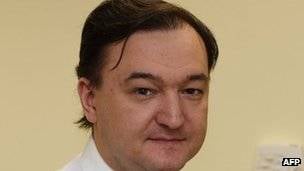The replacement of senior Bank of Moscow executives was fairly predictable after the high-profile sacking of Moscow Mayor Yury Luzhkov. Thats the way oligarchic capitalism works; key companies were bound to have their executives replaced, at the very least.
The way it was done wasnt far out of the ordinary either: a criminal investigation combined with an aggressive PR campaign. Any sensible businessman should have read the writing on the wall and given up, unless they wanted to end up behind bars like Mikhail Khodorkovsky or, worse still, Sergei Magnitsky. Theres nothing new about the practice of selling a business at a ridiculous discount to obscure but clearly influential buyers. The best one can hope for is that they are properly registered, unlike Baikal Finans Group (the company that won a huge chunk of the disgraced Yukos), which was registered in London a pub in Tver.
Anyone with even a passing knowledge of the business developments in Russia in the past decade could hardly see the Bank of Moscow case as unique. A revival of corporate raiding is also out of the question because it never died out in the first place. What we are witnessing is rather the continuation and harmonious development of a long-standing government policy.
The only difference is that Moscow eventually lost its bank. This is bound to affect the manageability of the citys economy in the longer term. It is also unusual that state-controlled VTB, of all banks, should take it over. The two banks structures are almost identical, and many of their offices are located next-door to one another, making them natural rivals. This means that the takeover will result in VTB having twin units.
Buying Bank of Moscow, especially at a discount, made sense for VTB, but only as a short-term acquisition. It allowed the buyer to cover its losses with the profits of its newly acquired asset. This dramatic improvement on VTBs balance sheet will certainly boost VTBs market capitalization and raise more money from its partial privatization.
Full version of the article was originally published on www.valdaiclub.com
The way it was done wasnt far out of the ordinary either: a criminal investigation combined with an aggressive PR campaign. Any sensible businessman should have read the writing on the wall and given up, unless they wanted to end up behind bars like Mikhail Khodorkovsky or, worse still, Sergei Magnitsky. Theres nothing new about the practice of selling a business at a ridiculous discount to obscure but clearly influential buyers. The best one can hope for is that they are properly registered, unlike Baikal Finans Group (the company that won a huge chunk of the disgraced Yukos), which was registered in London a pub in Tver.
Anyone with even a passing knowledge of the business developments in Russia in the past decade could hardly see the Bank of Moscow case as unique. A revival of corporate raiding is also out of the question because it never died out in the first place. What we are witnessing is rather the continuation and harmonious development of a long-standing government policy.
The only difference is that Moscow eventually lost its bank. This is bound to affect the manageability of the citys economy in the longer term. It is also unusual that state-controlled VTB, of all banks, should take it over. The two banks structures are almost identical, and many of their offices are located next-door to one another, making them natural rivals. This means that the takeover will result in VTB having twin units.
Buying Bank of Moscow, especially at a discount, made sense for VTB, but only as a short-term acquisition. It allowed the buyer to cover its losses with the profits of its newly acquired asset. This dramatic improvement on VTBs balance sheet will certainly boost VTBs market capitalization and raise more money from its partial privatization.
Full version of the article was originally published on www.valdaiclub.com




